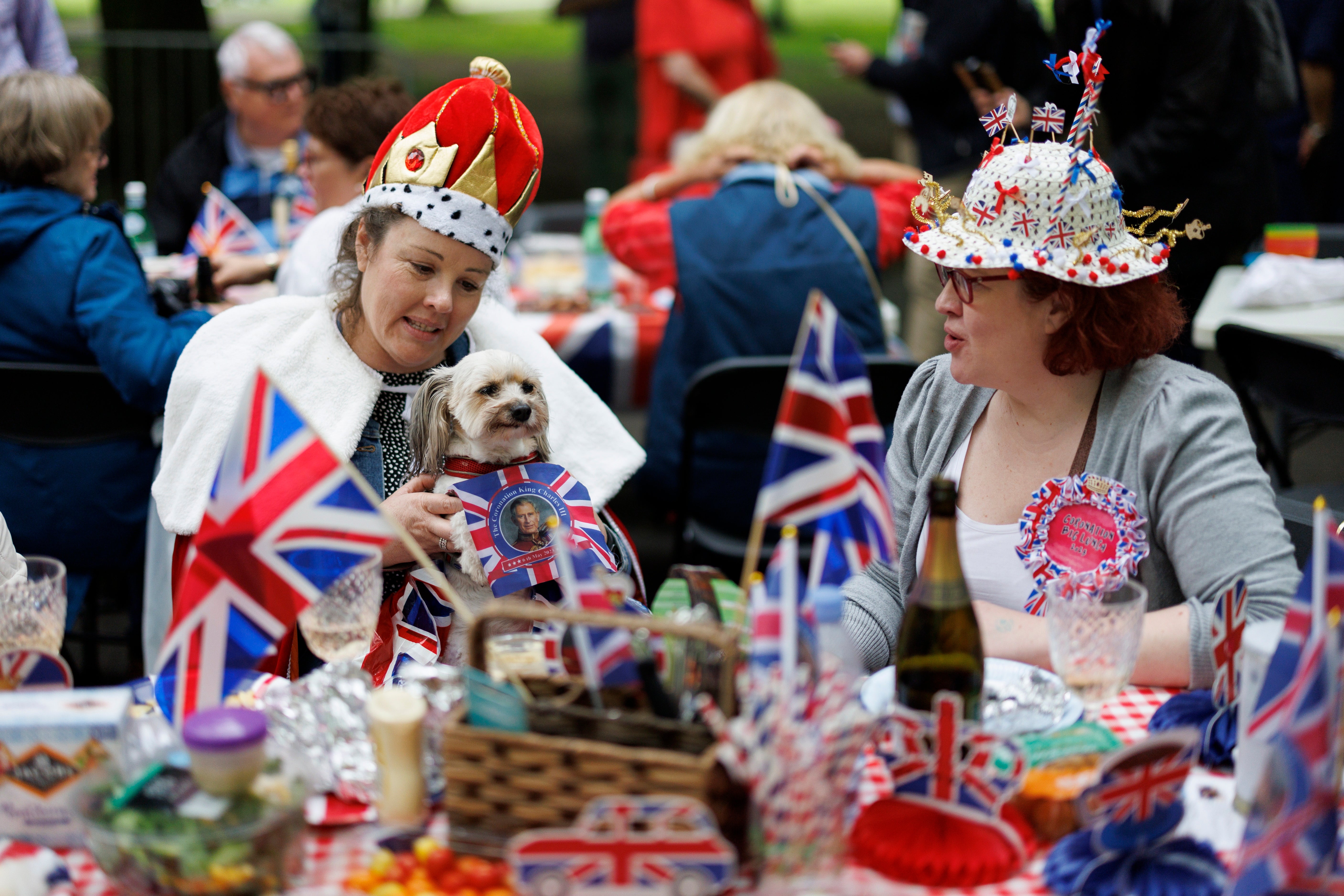UK economy shrinks slightly after coronation bank holiday
Contraction driven by royal occasions, meaning sectors like construction and finance lost a working day, Office for National Statistics says
Your support helps us to tell the story
From reproductive rights to climate change to Big Tech, The Independent is on the ground when the story is developing. Whether it's investigating the financials of Elon Musk's pro-Trump PAC or producing our latest documentary, 'The A Word', which shines a light on the American women fighting for reproductive rights, we know how important it is to parse out the facts from the messaging.
At such a critical moment in US history, we need reporters on the ground. Your donation allows us to keep sending journalists to speak to both sides of the story.
The Independent is trusted by Americans across the entire political spectrum. And unlike many other quality news outlets, we choose not to lock Americans out of our reporting and analysis with paywalls. We believe quality journalism should be available to everyone, paid for by those who can afford it.
Your support makes all the difference.Britain’s economy shrank last month partly due to the additional bank holiday for the King’s Coronation, official figures show.
Office for National Statistics data said the economy contracted by 0.1 per cent in May following growth of 0.2 per cent in April.
The 0.1 per figure was slightly better than economists had predicted but tallies with a series of peaks and troughs over the past year that has left growth essentially flat on a quarterly basis.
The contraction was driven by the extra bank holiday weekend for the royal occasion, meaning sectors like construction and finance lost a working day in the month.
Economists had been expecting the economy to shrink slightly more. Deutsche Bank thought the monthly GDP decline would be 0.3 per cent, while Investec Economics had predicted 0.5 per cent.

The economy had been boosted in April as Britons spent more in pubs, bars and shops.
Officials at the ONS said that the hospitality sector didn’t take full advantage of the extra bank holiday for the coronation on 8 May.
It added that no major sector of the economy was in growth last month and services overall - which dominate the UK economy and accounts for 80 per cent of output – flatlined.
Darren Morgan, director for economic statistics at the ONS, said: "GDP fell slightly as manufacturing, energy generation and construction all fell back with some industries impacted by one fewer working day than normal.
"Meanwhile, despite the coronation bank holiday, pubs and bars saw sales fall after a strong April. Employment agencies also saw another poor month.
"However, services were flat overall with health recovering, with less impact from strikes than in the previous month, and IT also had a strong month.
"Across the last three months as a whole, the economy showed no growth."
The latest GDP figures come just days after Bank of England governor Andrew Bailey insisted that the central bank must “see the job through” to bring down inflation.
The Bank has come under fire this year for struggling to contain rising prices, which remained at 8.7 per cent in May – way above its 2 per cent target.
In response, the Bank raised interest rates for a 13th consecutive time to 5 per cent, the highest level since 2008 - pilling further misery on mortgage holders across the country already living with the cost of living squeeze.
A further base rate rise is expected when the Bank’s Monetary Policy Committee meets again on 3 August.
Earlier this week mortgage costs surpassed the peak seen in the wake of Liz Truss’s disastrous mini-Budget last autumn, with the Bank warning homeowners to prepare for a “huge” fall in disposable income.
The average homeowner is facing an increase in monthly mortgage payments of around £220 when renewing their fixed-rate deals, while another half a million households could see payments climb by £750 a month or more, the Bank said.
Rising interest rates could cost one million borrowers an extra £500 a month by 2026.
Responding to Thursday’s GDP figures Rachel Reeves, the shadow chancellor, said: “The Tories seem determined to march us down a path of low growth and economic insecurity.
“Labour will build a stronger economy so that working people get the future they deserve.”
Jeremy Hunt, the chancellor, said inflation continues to act as a drag on the economy and insisted that the government’s plan “will work”.
“While an extra bank holiday had an impact on growth in May, high inflation remains a drag anchor on economic growth,” he said.
"The best way to get growth going again and ease the pressure on families is to bring inflation down as quickly as possible. Our plan will work, but we must stick to it.”



Join our commenting forum
Join thought-provoking conversations, follow other Independent readers and see their replies
Comments